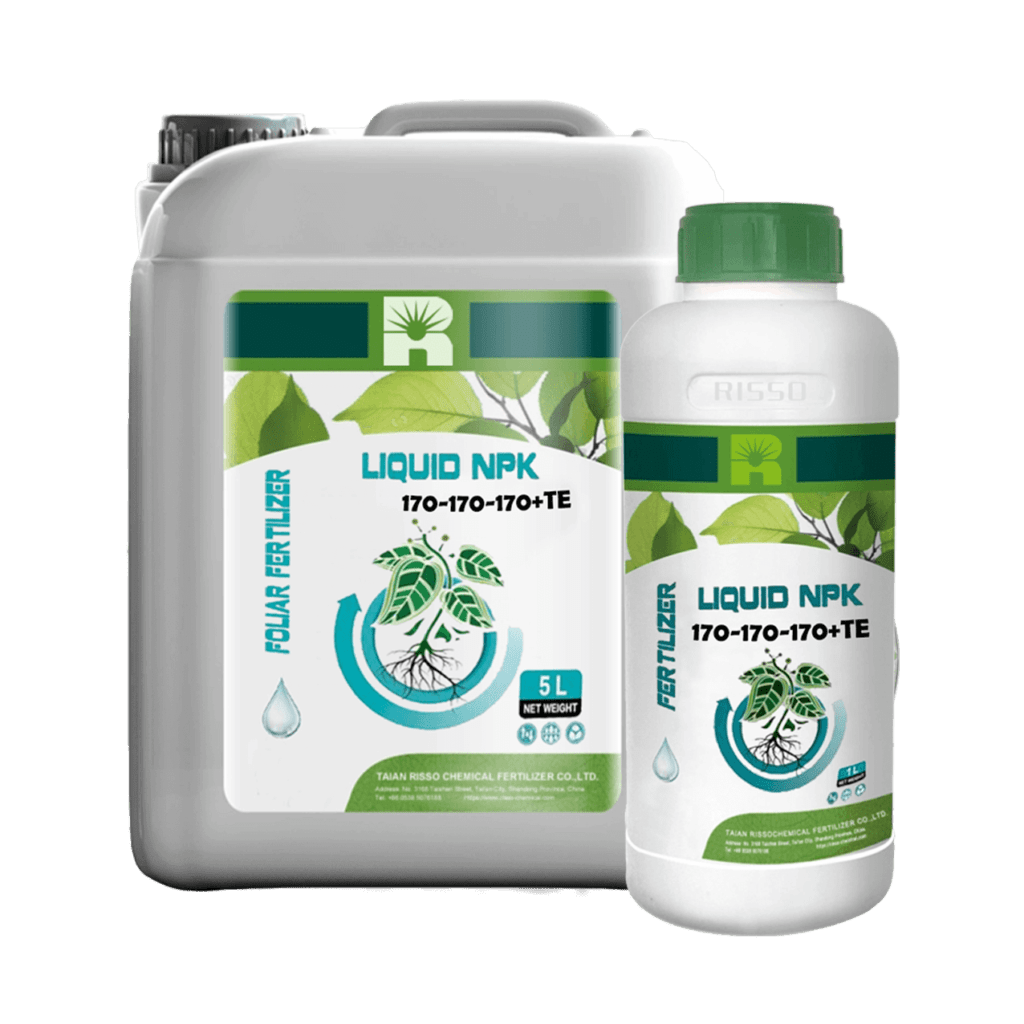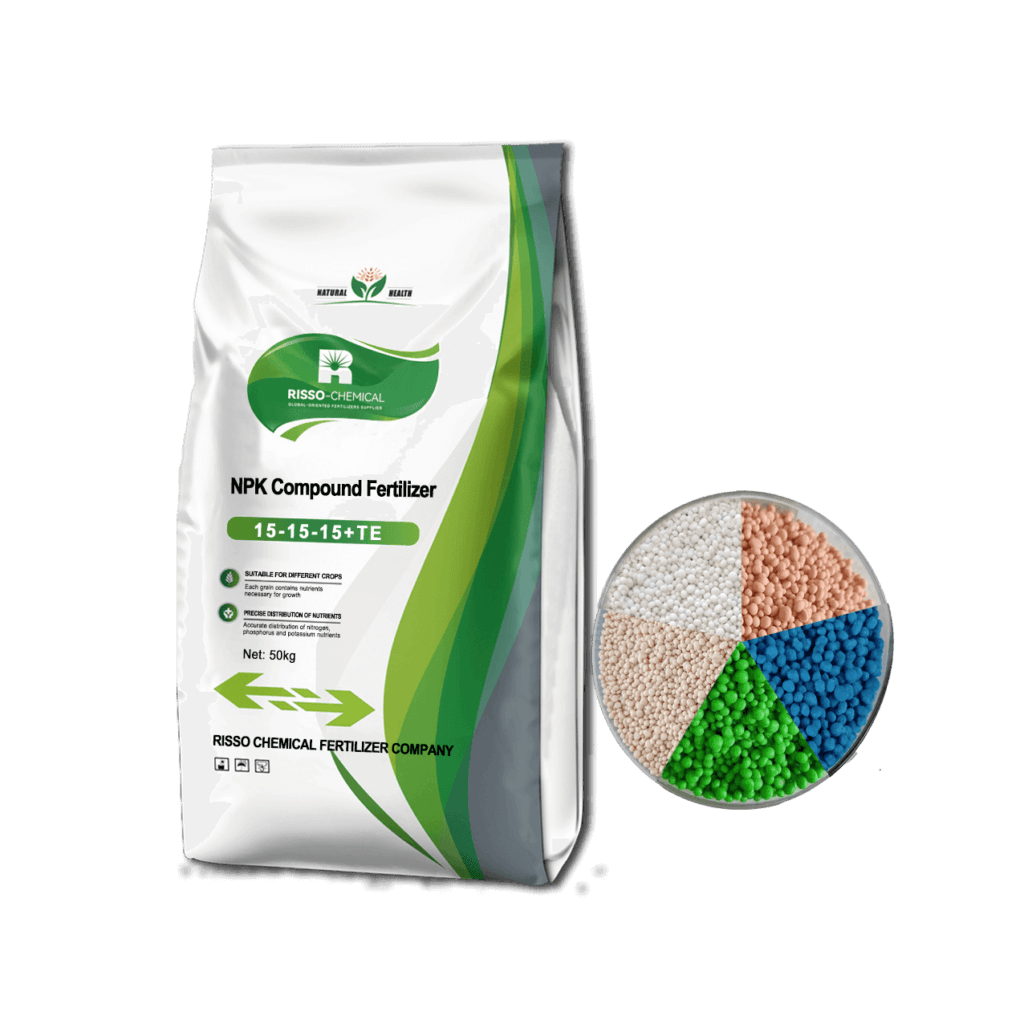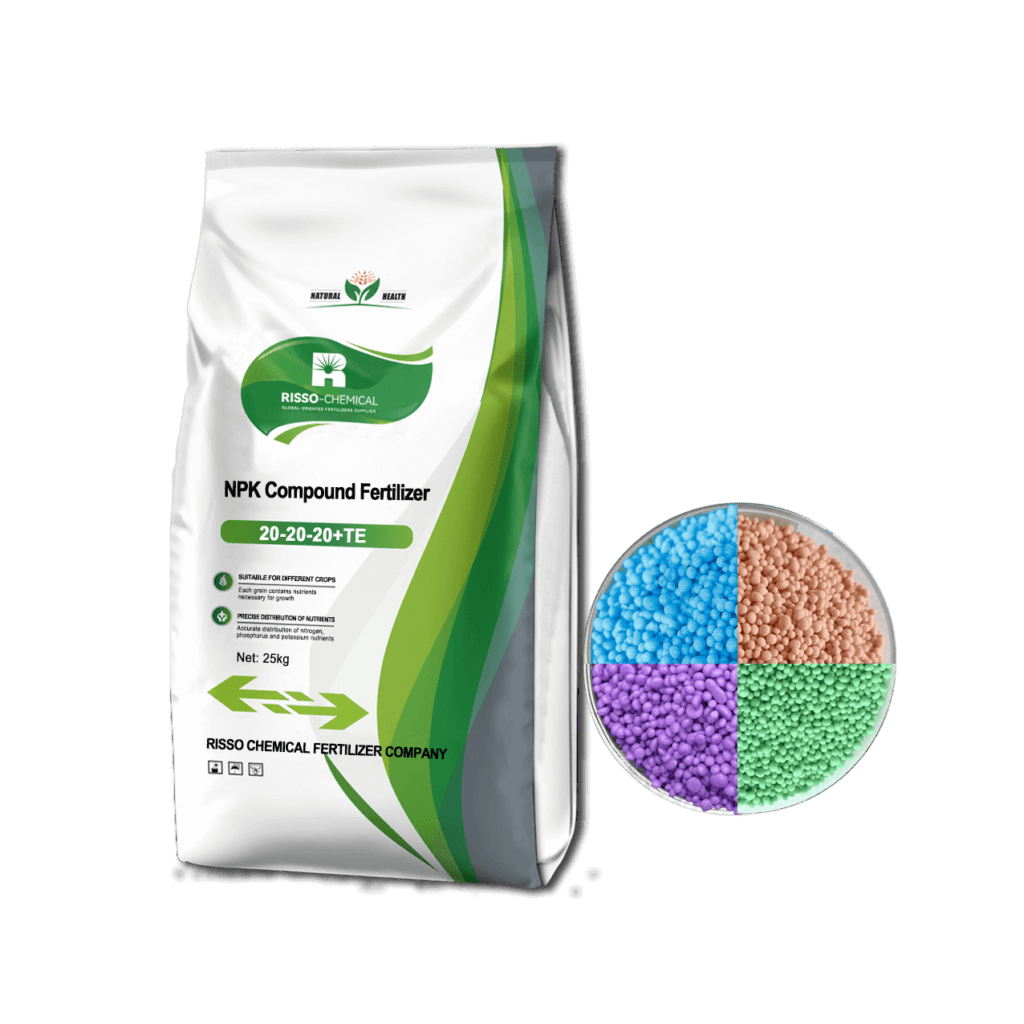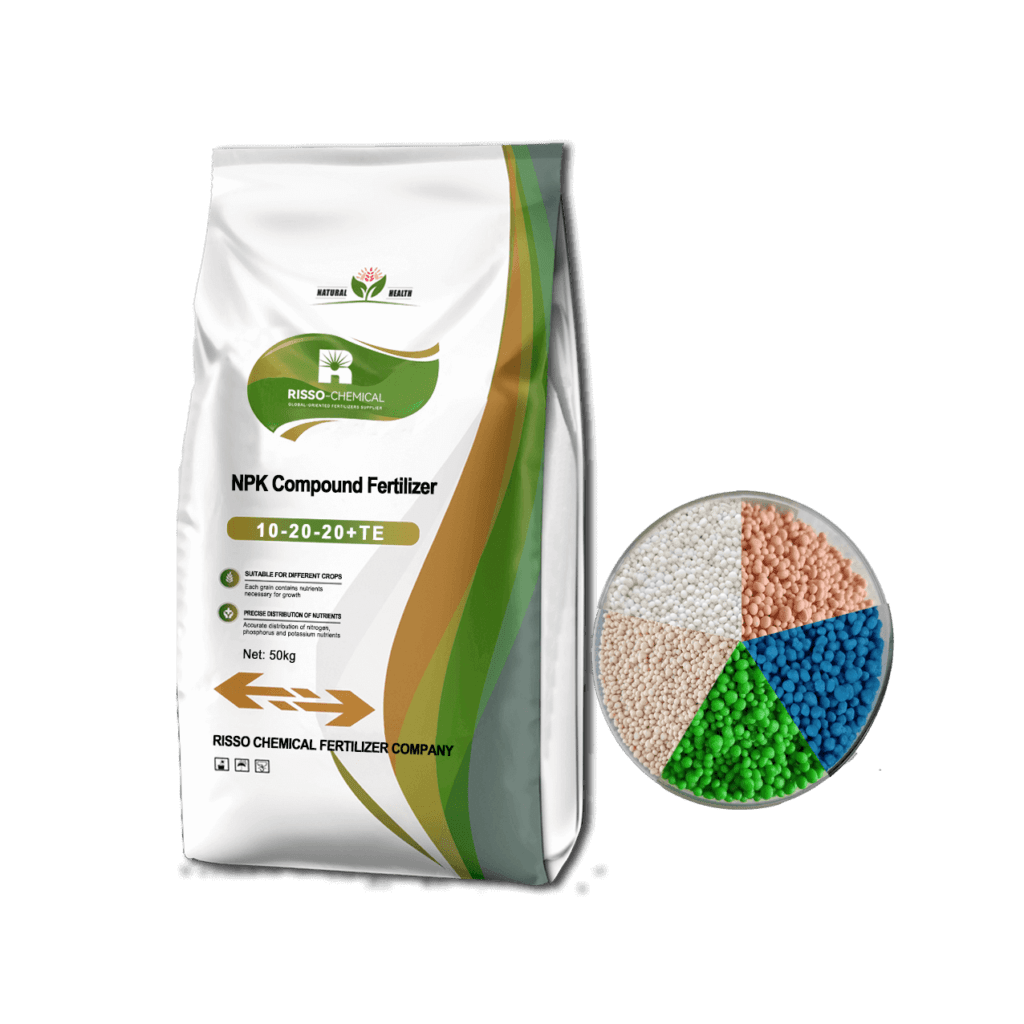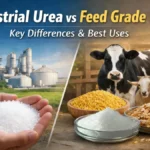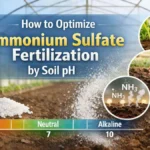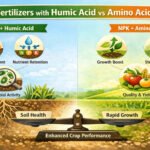Let more growers get greater benefits
Does NPK Fertilizer Go Bad? Shelf Life, Storage Tips
- Industry News
- September 13, 2017
- 3:12 pm
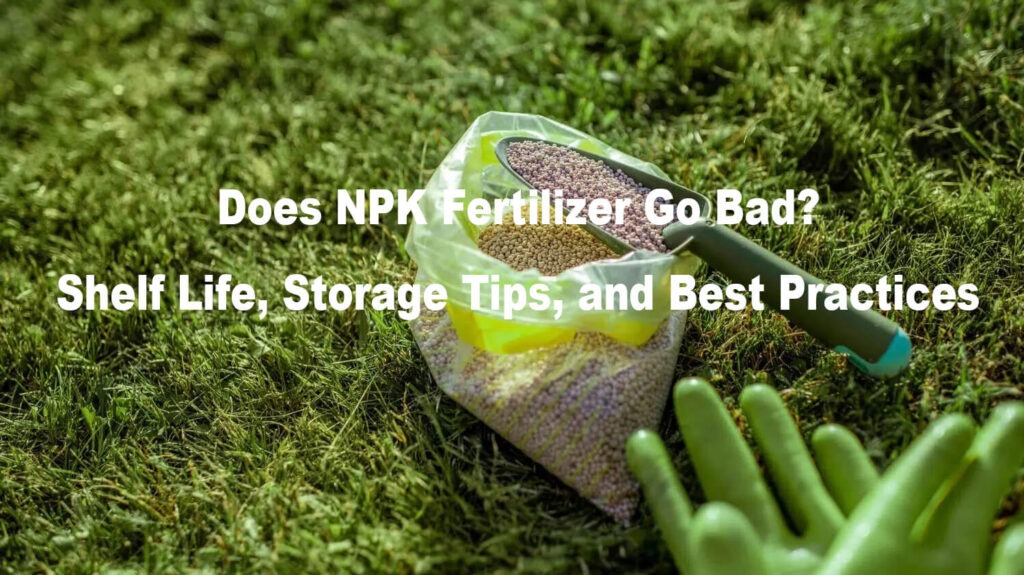

NPK fertilizers are essential for providing plants with the nutrients they need for healthy growth, But many gardeners and farmers wonder doesr NPK fertilizers have a shelf life or if they lose effectiveness over time..
In this guide, we’ll discuss whether NPK fertilizers go bad, how to store them properly to maximize their effectiveness, and how to tell if your fertilizer is still good to use. By following best practices for NPK fertilizer shelf life and storage, you can avoid waste and achieve the best results for your plants.
List of Contents
- Understanding NPK Fertilizer Composition and Stability
- Shelf Life of Different Types of NPK Fertilizers
- Signs Your NPK Fertilizer Has Lost Effectiveness
- Best Practices for Storing NPK Fertilizers
- Tips for Using Older NPK Fertilizer
- Environmental Impact of Old or Expired Fertilizer
- Frequently Asked Questions About NPK Fertilizer Shelf Life
- Conclusion
Understanding NPK Fertilizer Composition and Stability
NPK fertilizers are typically composed of three primary nutrients—nitrogen (N), phosphorus (P), and potassium (K)—in various ratios. There are many types of NPK fertilizers, including:
- Granular NPK Fertilizers: Solid, slow-release fertilizers with an indefinite shelf life when stored properly. Ideal for gardens, lawns, and crops, granular NPK fertilizers offer a convenient, long-lasting solution.
- Water-Soluble NPK Fertilizers: These fertilizers dissolve quickly in water, making them ideal for vegetables, flowering plants, and other growth stages requiring immediate nutrient uptake. Proper NPK fertilizer storage can extend the shelf life of water-soluble varieties.
- Liquid NPK Fertilizers: Liquid fertilizers are convenient and effective, but they can have a shorter shelf life if exposed to contamination. Correct storage practices help maximize liquid NPK fertilizer effectiveness.
- Controlled-Release NPK Fertilizers: Designed to release nutrients over a set period, controlled-release fertilizers are beneficial for crops in areas with heavy rainfall or for gardeners who need a steady nutrient supply.
With the proper knowledge of NPK fertilizer composition and storage requirements, you can keep your fertilizers effective and ready for use whenever you need them.
Shelf Life of Different Types of NPK Fertilizers
While NPK fertilizers don’t technically expire, improper storage can reduce their effectiveness over time. Here’s an overview of the typical shelf life of each types of NPK fertilizers when stored under optimal conditions:
- Granular NPK Fertilizers: When kept dry and stored in a cool, dark place, granular fertilizers last indefinitely. Their stable composition makes them highly suitable for long-term fertilizer storage.
- Liquid NPK Fertilizers: Liquid fertilizers typically have a shelf life of 5-10 years but can begin to separate over time. Shaking the container before each use can help maintain liquid fertilizer shelf life, but clumping or a foul odor could mean it’s time to replace it.
- Controlled-Release Fertilizers: These fertilizers are designed for specific release periods (e.g., 6-12 months in soil), not necessarily for extended storage. If stored properly, controlled-release fertilizers will maintain their coating and nutrient levels.
The shelf life of NPK fertilizers varies depending on the type, but with proper storage, you can extend the usability of your NPK fertilizers and ensure they deliver maximum nutrients to your plants.
Signs Your NPK Fertilizer Has Lost Effectiveness
While NPK fertilizers may not “go bad” in the traditional sense, they can lose their effectiveness if exposed to moisture, temperature changes, or contamination. Many NPK fertilizer manufacturers emphasize proper storage to prevent such degradation, but here are some signs that your NPK fertilizer may no longer be as potent:
- Clumping or Hardened Granules: Exposure to moisture causes granular fertilizers to clump or harden, making them difficult to spread and less effective.
- Color Changes or Foul Odor in Liquids: Liquid fertilizers that separate, turn cloudy, or develop a foul odor may be compromised and less effective.
- Mold or Microbial Growth: Mold growth is a clear sign of contamination and indicates the fertilizer is no longer safe to use.
If you notice these signs, it’s wise to replace your fertilizer or conduct a test application to determine if it still delivers adequate plant nutrients.
Proper NPK fertilizer storage helps preserve its quality, ensuring that it remains effective when you need it. Here are storage tips for each type:
- Granular NPK Fertilizers: Store in a sealed container to keep moisture out and place it in a cool, dry area. Granular fertilizers can last for years if protected from humidity.
- Liquid NPK Fertilizers: Keep containers tightly closed to prevent evaporation or contamination and store them in a temperature-stable environment. Shaking liquid fertilizers before use can help maintain consistency.
- Controlled-Release Fertilizers: Keep controlled-release fertilizers dry and avoid puncturing the coating. Controlled-release NPK fertilizers stay effective as long as the coating remains intact and storage conditions are dry and cool.
Proper fertilizer storage not only extends the shelf life but also minimizes waste and ensures optimal plant health when you apply the fertilizer.
Tips for Using Older NPK Fertilizer
If you’ve stored your NPK fertilizer for an extended period, follow these tips to ensure it’s still effective:
- Test Small Amounts on Plants: Unsure if an old fertilizer is still good? Apply a small amount on a test plant and observe its response before wider use.
- Shake or Mix Well: For liquid fertilizers, shake well to redistribute nutrients. Granular fertilizers that have clumped can be broken up for easier application.
- Break Up Clumps: Clumped granular fertilizers may still be effective if broken up properly. Use a sieve or crush clumps manually for easier application.
These NPK fertilizer usage tips can help you save on costs and avoid waste by making the most of older fertilizers.
Environmental Impact of Old or Expired Fertilizer
Expired or poorly stored fertilizers can lead to nutrient runoff, polluting nearby water sources and disrupting ecosystems. Additionally, fertilizers that have separated or broken down chemically may not deliver the correct nutrients, causing plants to grow poorly. By following best practices for storing NPK fertilizers and using fertilizers responsibly, you can minimize waste and reduce environmental impact.
Frequently Asked Questions About NPK Fertilizer Shelf Life
Can NPK fertilizers freeze?
Yes, liquid fertilizers can freeze. While freezing won’t typically impact potency, freezing can damage containers, so it’s best to store liquid fertilizers in temperatures above freezing.Can I use clumped granular fertilizer?
Yes, clumped fertilizer can still be effective if broken up before application. Moisture can cause clumping, but breaking up clumps will restore its usability.What happens if I apply expired fertilizer?
Expired fertilizer may not deliver nutrients as effectively and can lead to inconsistent plant growth. To ensure your fertilizer is still effective, consider testing a small amount on a plant.
Conclusion
While NPK fertilizers do not strictly “expire,” improper storage can reduce their effectiveness over time. Understanding how to store NPK fertilizers correctly is essential for preserving their potency and ensuring they are ready to support optimal plant growth when needed. Proper storage and usage practices not only minimize waste and enhance plant health but can also reduce costs—especially important with rising 2024 NPK fertilizer prices. By following best practices, you can make the most of your fertilizer investment, support environmentally friendly gardening, and achieve better results for your plants.
NPK Related Products
If you want to know other questions about NPK Fertilizer, please contact us and we will provide professional answers.
- Article
What will you get when touch?
✔ Quick & helpful reply within 6 hours.
✔ Tailored solutions for your project.
✔ One-stop product, tech, market
TRENDING
Want to find a China fertilizer manufacturer?
Risso will be your best choice; send us your request for your fertilizer details requirement
TAIAN RISSO CHEMICAL FERTILIZER CO.,LTD.
- Address: High-tech Development Zone, Taian City, Shandong Province
© Copyright 2017 RISSO CHEMICAL. All Rights Reserved.



